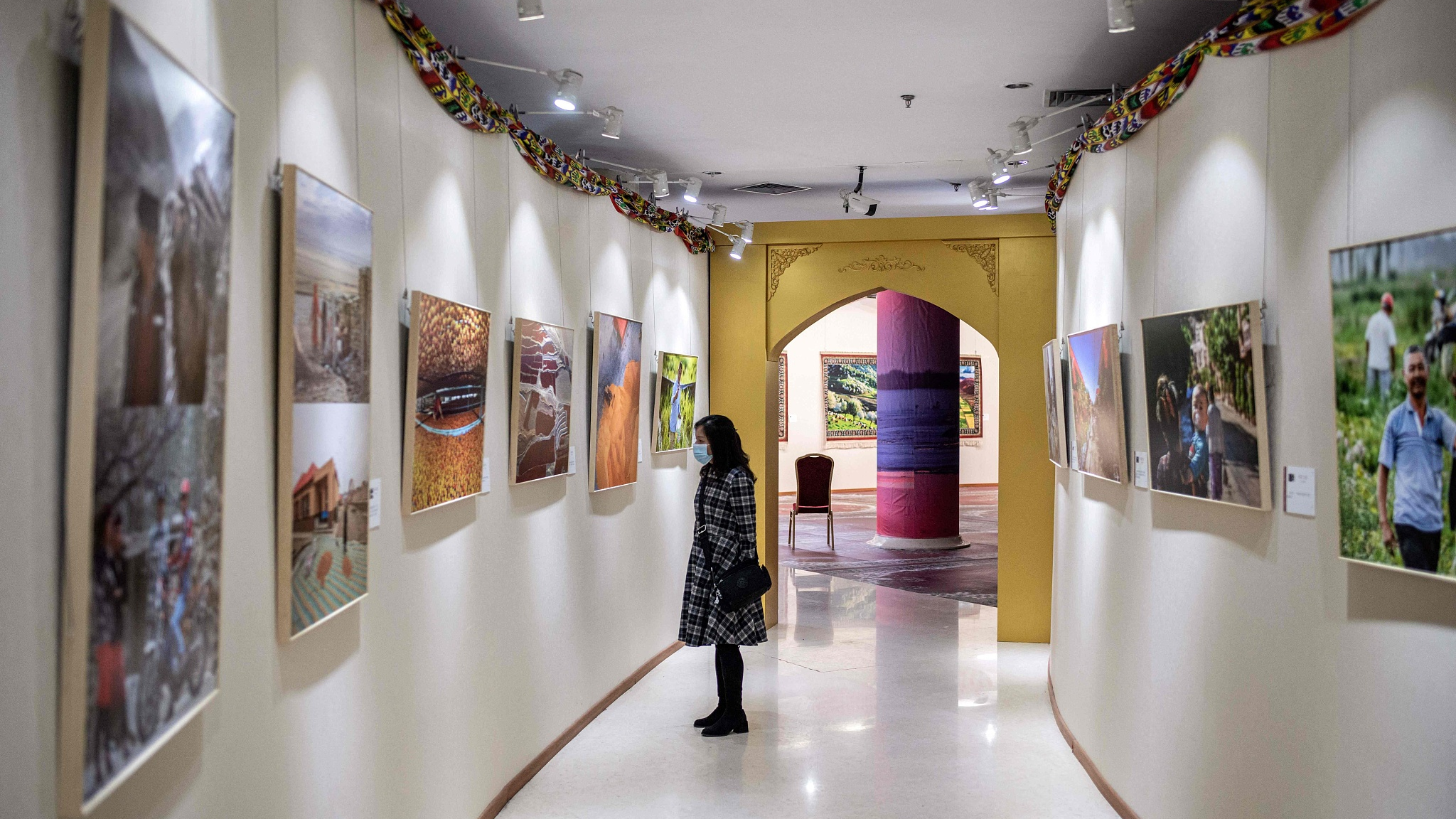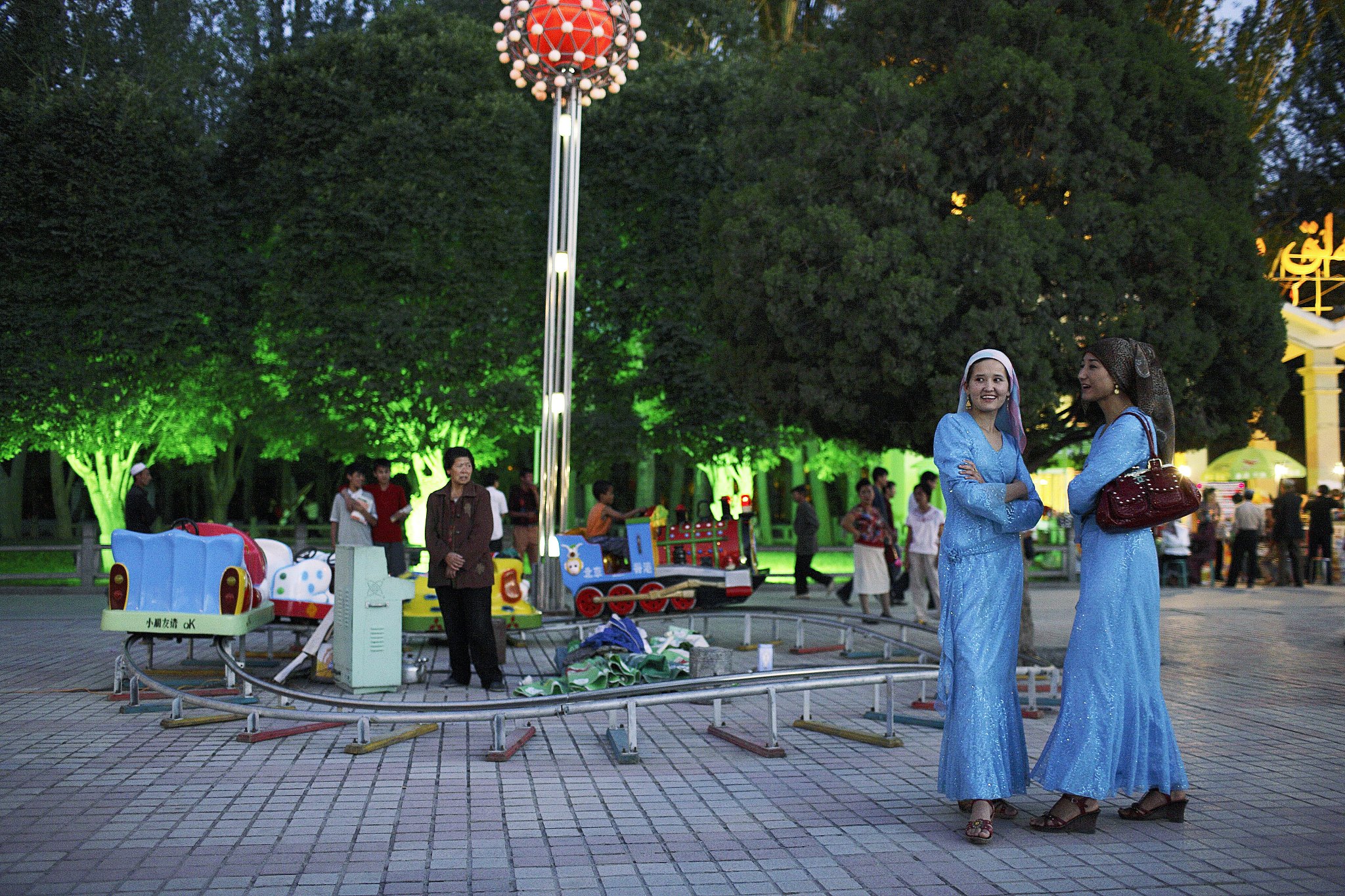
A woman views a photo exhibition featuring images taken in Xinjiang, organized by the China Photographers Association, March 24, 2021, Beijing, China. /VCG
A woman views a photo exhibition featuring images taken in Xinjiang, organized by the China Photographers Association, March 24, 2021, Beijing, China. /VCG
Editor's note: Keith Lamb is a University of Oxford graduate with an MSc degree in Contemporary Chinese Studies. His primary research interests are China's international relations and "socialism with Chinese characteristics." The article reflects the author's opinions and not necessarily the views of CGTN.
Pew surveys generally have a good reputation for statistical collection. Their statistics have mirrored what I have observed for over 15 years on the ground in China. Namely, that Chinese citizens are happy with their governing system.
Likewise, a recent Pew survey taken in 17 advanced liberal economies confirms what I have experienced on the ground in the West. Namely, Western populations are increasingly unhappy with China, which they believe represses individual freedoms and human rights.
What can one make of when Western "pity" flies in opposition to Chinese citizens who are, considering the tremendous achievements China has made, rightly satisfied with their lives and which they expect to improve on? For myself, I see this as a reflection of first, the overwhelming power of Western propaganda to set the narrative, and second, it acts as a canary in the coalmine for Western belligerence.
Liberal democratic "pity" and "compassion," detached from the context of reality on the ground, have historically been the harbinger of committing the worst human rights violations imaginable. "Compassionate wars" founded on saving the "pitiful" have robbed states of the ultimate foundations of human rights and individual freedom. This ultimate foundation is, of course, the mass of living individuals murdered through the processes of war and sanctions.
Clearly, this negative perception of China has been forged from Western propaganda efforts over the past decade or so; previously, a smaller number of Western people had a negative opinion of China.
But what has changed? I first went to China in 2004 and undoubtedly China's population, which was still tackling absolute poverty, had a lower standard of living than today. Perhaps some will point to the "genocide," "slavery," and "concentration camps" in Xinjiang Uygur Autonomous Region. However, I will point back to a fool who has swallowed "atrocity propaganda."
Disappointingly, the Pew survey finds that those with a higher level of education are more likely to hold negative views on China. As such, this is a case not of knowledge in the service of enlightenment, but knowledge acting as an invisible cage of ignorance.
Today, personal freedom and human rights in China are in fact at historical highs. Importantly, they will continue to grow. This is because China's ideology, rooted in historical materialism, believes in ongoing comprehensive development, and this ideology is reflected in the real gains made by the Chinese.
For example, the ubiquitous Chinese tourist encapsulates the growing freedoms of consumption and travel experienced by China's ever-growing middle class. Notably, these tourists readily come back to a "repressive" China.

Women in traditional clothing chat at a park in Kashgar, northwest China's Xinjiang Uygur Autonomous Region, June 20, 2007. /VCG
Women in traditional clothing chat at a park in Kashgar, northwest China's Xinjiang Uygur Autonomous Region, June 20, 2007. /VCG
Of course, the term "middle class" is merely a word denoting a well-to-do worker, who generally uses their thinking capacity to labor, rather than their physical capacity. This is a class that China is determined to see expand.
For this, China will provide the necessary human rights infrastructure such as increased welfare, healthcare, and education. Indeed, this aim can be summed up in China's next major goal which is to build a socialist China.
The basic fact of life is that human and individual rights do not exist in a vacuum, they are determined by our social structures. Human and individual rights do not exist where poverty persists or where war prevails, and they are negated when enforced through external interference.
Consider the fact that Western capital had no problem moving its most alienating production to China. By doing so, it was able to escape the demands of Western workers for a better life. Today, as China moves up the technological ladder, improves the livelihood of its citizens, and provides more middle-class jobs, Western forces seek its demise.
Hence, the U.S. – the representative of transnational capital, which seeks to maintain unipolarity – has stepped up its propaganda efforts to defame China. Indeed, Pew notes that bilateral tensions from 2018 have been a trigger to Western negativity.
Furthermore, China's handling of COVID-19 is also proclaimed as a key trigger for Western disapproval toward China. Again, having experienced COVID-19 lockdown in the UK and China, this is unfounded and can only be attributed to distorted reporting.
China's swift measures to curb COVID-19 were publicized as an attack on human rights. However, it is widely noted that China's strict lockdowns saved the lives of many individuals. In contrast, where are the human rights of the thousands reported dead in some Western states? Clearly, the interests of capital came well above those of the average citizen.
China, for its part, can only continue to do its best, improve on its deficiencies, and trust in its right to set its own political-economic system. It is this right, won out through mass struggle, which allows for real material development. It is this development that takes human rights away from empty rhetoric and into the real world. In essence, it is this right, which allows China, as part of the Global South, to define what human rights mean from their own terms, rather than be captured inside the invisible cage of ignorance by those who wish "enlightened poverty" in the Global South.
(If you want to contribute and have specific expertise, please contact us at opinions@cgtn.com.)

